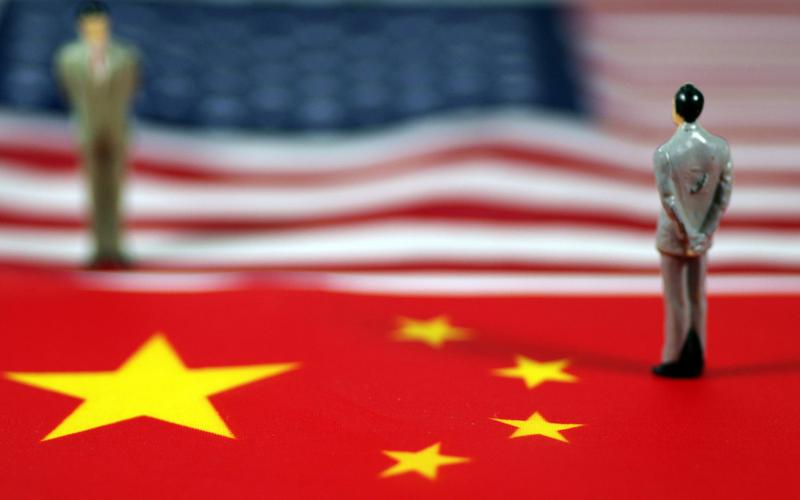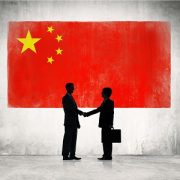China’s president Xi Jinping accepting to attend US president Joseph Biden’s summit on climate change was a rare ray of light in the middle of a very dark situation.
Differences and rivalry
The two countries have differences over ideology, culture, civilization, trade, currency management, Hong Kong, Xinjiang, and human rights. There is rivalry for global primacy. There are ongoing fights in cyberspace and space; there is major competition over technology and the Belt and Road Initiative.
There are conflicting claims and deep tussles in many geopolitical areas: Taiwan, the South China Sea, the Senkaku, the Indian border, North Korea, and the dealing and future of Myanmar, Iran, and Russia. There are growing fissures over the future role of the digital yuan against that of the dollar.
There are just too many tensions, and it seems likely that these tensions cannot be solved and will be blown out of proportion. Moreover, the global tectonic shifts which are being brought about by Covid and its consequences are further fueling those tensions.
The vaccines are creating an area for diplomatic and political tensions, and the stimulus packages further enhance divergences.
Financial boost
Europe, the United States, and Japan need and want a stimulus package to boost the economy out of the present slump. It will possibly be the largest financial aid package in global history. Thousands of trillions will be poured into the economy to reshape the wealth system and world trade. The measures will bring inflation, and there are already signs in the United States that higher prices are kicking in.
China conversely doesn’t need a stimulus package. It posted 18.3% growth in the first quarter of the year, and a large plan for infrastructure is already taking place. Moreover, global demand for Chinese industrial products has been driving growth in China in recent months.
Further, an injection of money could force China to import inflation with price hikes in commodities, oil, and ore, and thus impose share price increases on the Chinese middle class with unfathomable consequences. Any of these challenges could be handled by themselves, but in combination, they make a huge question mark.
No status quo ante
Sure enough, the European Union is almost crumbling after Brexit, as if the exit of the UK from the union created wider disarray. Angela Merkel is retiring in Germany and there are no certainties about who will follow her strong leadership. Emmanuel Macron in France is strong, yet the challenge posed by the extreme right must not be underestimated.
In Italy, one has the paradox of a very strong leader, Mario Draghi, on an extremely weak body, the system of Italian parties, which is almost melting into thin air. Things are better in the United States perhaps, but not by much.
The divide between Democrats and Republicans is difficult to overestimate, and ex-president Donald Trump remains extremely controversial in American politics. The cultural divide is getting very deep, with the left clinging to a new political correctness that shapes everything and Middle America feeling overlooked and passed over by the two coasts.
Railways and highways hardly stop in the Midwest, where there is no growth and where people are clinging to a conservative, if not reactionary, way of seeing the world. In all of this, in the West and in China, people think that these splits mean the United States and Europe could never master the unity needed to confront China in a hard way.
Conversely, some people in the West think that confrontation with China could be a blessing in disguise, as China could become the one thing that binds the countries in the West together and gives it an alternative motive to push forward.
In all of this, there is no status quo ante to go back to. If peace will be found it cannot be the situation that existed five or six years ago. That is gone. Here the US has some plans: to force Xi to step down or topple the CPC. These plans can be objectionable, hard to obtain but they are concrete goals. China conversely has no “counter offer”.
Apparently, it wants the status quo ante, but that is long gone and it’s not clear what a new status quo can be. The clash of harsh, although maybe offensive American goals with the lack of Chinese goals builds an impossible maze of short-circuited communications.
What can China do in all of this?
Furthermore, there is no ongoing effort to stop the current trends, also because the main sources of drive at the moment are vaccines and the stimulus packages, which push this part of the world away from and against China.
What can China do in all of this? As early as the late 1990s, at the time of the Cox report and right after the return of Hong Kong to the mainland, China should have thought that this day of reckoning would have come and should have addressed one of the issues that could help mitigate the situation.
Surely, making enough changes to the political system might not have totally avoided the present predicament, but a dialogue, even a clash between two democratic systems, is less likely to end up in a destructive confrontation.
Japan and the United States had their differences in the 1980s, the 1990s, and the beginning of the 21st century, and the United States had deep disagreements with the European Union. Yet despite all the bad rhetoric, neither of these conflicts resulted in war because they were part of one military alliance and they were all democracies.
In all of this, one could see the path forward for China 20 years ago. China should have sought out greater military collaboration with the United States, democratic reforms and wider, faster teaching of English to connect more Chinese people with the rest of the world and thus make them count more.
The biggest and earliest stumbling block was the failure to have a real transition of power from Jiang Zemin to Hu Jintao at the 2002 Party Congress. Then Hu Jintao was appointed party secretary yet Jiang Zemin remained head of the powerful Military Commission. This created huge confusion in the administration and a situation in which everybody was in charge of everything, lots of people had veto power, and profound politically sensitive decisions were postponed, not taken, or only minimally addressed.
Justice not hegemony
Conversely, business and economic dividends were distributed into a kind of shaky system that went from the top to the bottom without much organization. This system lasted for over a decade until Xi Jinping took power ten years later, sidelining both of his predecessors and starting to unravel the existing mess. He did that, of course, by clashing with the vested interests that had been built in the past decades.
He did it also in the easiest way that was natural for the party system that ruled China inside and out – that is, by concentrating power in his hands. However, as all politics go, this created problems of its own, and actually this concentration of power prevents now China from engaging in the political reforms and military cooperation that could bring China closer to the US, and thus could tone down the friction.
At Bo’ao on April 20[1] Xi argued rightly that the world needs justice not hegemony, but who can provide justice? What is justice or injustice? Is justice lifting 1.4 bn people out of poverty, as Chinese are rightly proud, but what about cracking down on dissent?
How can war be evitable?
Who is going to judge, the Chinese, the people of the developed countries or the majority of the people of the world? What will Indians or other Asians, for instance, think?
We saw war coming for a couple of years[2] but now the big question seems to be, with this mounting mass of problem how can war be evitable? Perhaps all people in the world have to think long and hard about this, especially those in the USA and in China naively beating belligerent drums.
In the US the wave of anti-Beijing sentiment was slow to surge and it would be also slow and hard to rein in.
Can Xi turn the situation around in China, a country with a very different system, more responsive to its leader? It will be also very difficult and the Chinese communist party is a very grim beast to tame, as the long anticorruption campaign attested, but Xi showed he is cautious, smart and extremely brave. If perhaps there is one man who could pull it off it could be him.
[1] Xi Jinping’s speech at BFA Annual Conference-2021.
[2] You wronged me, thinks the US of China.







I’m sorry but this is dangerously naive. The Mr. Xi whom you are talking about, is the same man who just recently publicly declared that his genocidal policies in Xinjiang are 100% correct and must be carried out as planned. Anyone who disagrees with his regime is jailed, sacked, or put through the torture confession procedures and displayed on TV denouncing himself and parroting the party line. It’s the same procedures they’re forcing people through in the concentration camps with no care for human dignity or for human lives.
What do you expect from such a man other than more of the same? The only words he wants to hear is his parrot’s. Those lofty words you cited are fake, they are nothing but ruses for people like us, foreigners, for whom this Chinese regime in reality has nothing but contempt.
Power, and Panama accounts, is all they care about. We better wake up to these sad facts.
We should also stop conflating this sorry Communist regime with China the nation and China the people. They are better, and deserve better, than having their reputation soiled by this man and his machine.
It’s true that many Italians were fascists, and many Chinese are Communists, but there are innumerable good Chinese people who oppose the genocide — just see from the fact that the leaked Communist files on the genocide reveal that at least one Xinjiang official is in jail for refusing to send people to the concentration camps. Just see the former Chinese Culture Minister Wang Meng who came out swinging, before they silenced him too, and rejected the current regime’s demonization of the good Uyghur people. For more on this, see my, https://chinachannel.org/2021/01/22/chinese-racism/
There is no international democracy. US was founded by slave owners, eleven of the twelve men who signed the Declaration of Independence were slave owners. It talked about democracy but it didn’t deserve that lable in 1921, remember the Tulsa massacre? Did it ever reach the stage that it could be called a democracy? It outlawed Aparheid in 1964 but that still survives in many areas. By now it is clearly a plutocracy. You can vote for a different president and Congress but you can’t get significantly different policies.
After US had developed a superior economy it propagated the idea of the “Free Market Economy”, halve a century after UK reached the same position. By now US economy is in a state in which it cannot survive a period of a basic interest rate as high as 1 %. It is now a “Fake Market Economy”. Thousands of billions of dollars are created out of thin air for US to buy from other countries what it cannot make itselve. See for example: https://asiatimes.com/2021/04/us-inflation-indicators-flashing-red-alarm/.
US says it wants its friends to be democracies but didn’t find any difficulty in installing such dictators as Singman Rhee in South Korea, Ngo Dinh Diem in South Vietnam. It replaced, with British help, the democratic government of Iran by the Shah dictatorship in 1953. It is happy with the governments of Saudi Arabia and Bahrein. It supports the Apartheid regime in Israel.
US has the largest and by far the most expensive armed forces in the world. In 1996 China recognised it needed to rearm when president Clinton sent two Carrier Battle Groups through Taiwan Strait. The alternative was to become a satellite of US. And while US armed forces specialised in fighting the resistance in the Middle East and Afghanistan China, and also Russia, invested in the armed forces necessary to deter US.
There is no advantage for China to become a hegemon in place of US. Much better to return to the Charter of the United Nations and cooperate with other nations to invest in the means to reduce and live with the effects of climate change and invest much less in war.